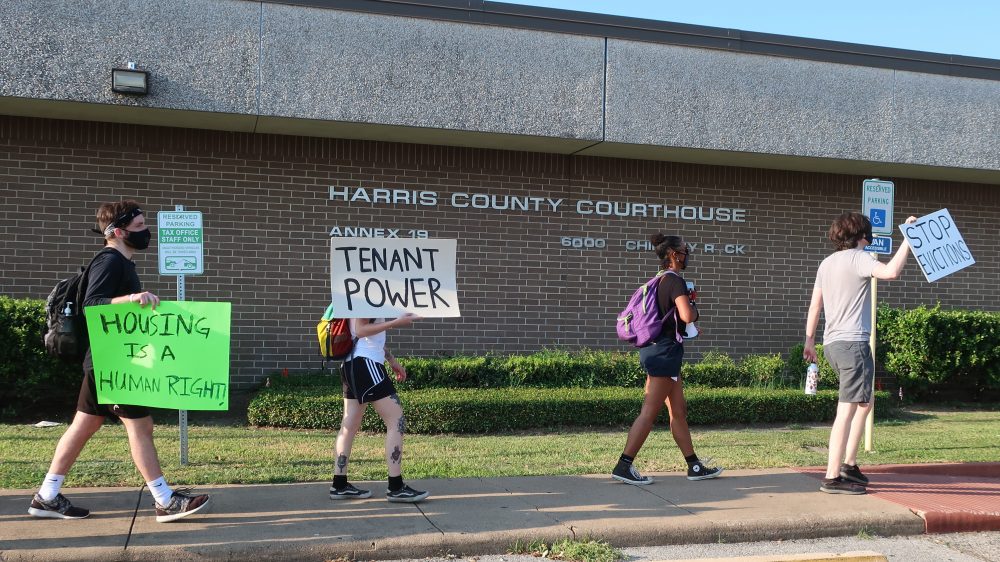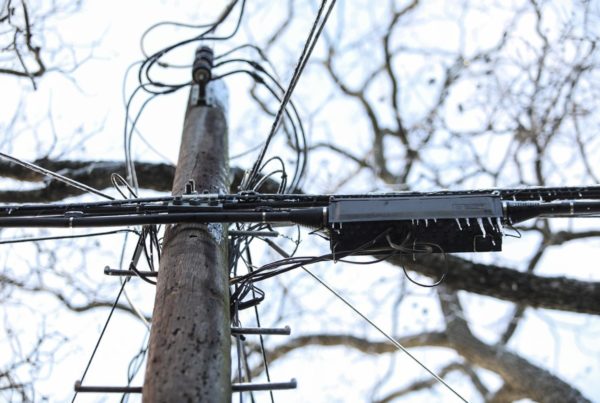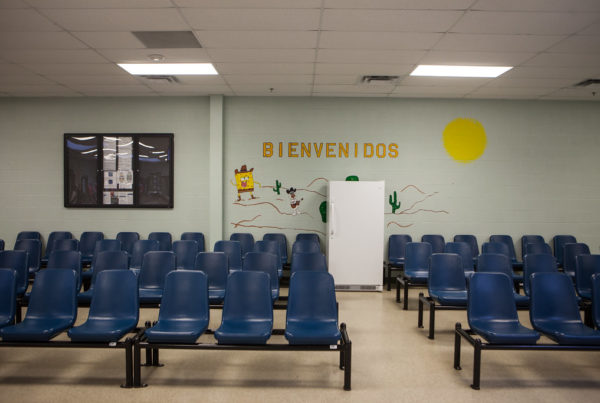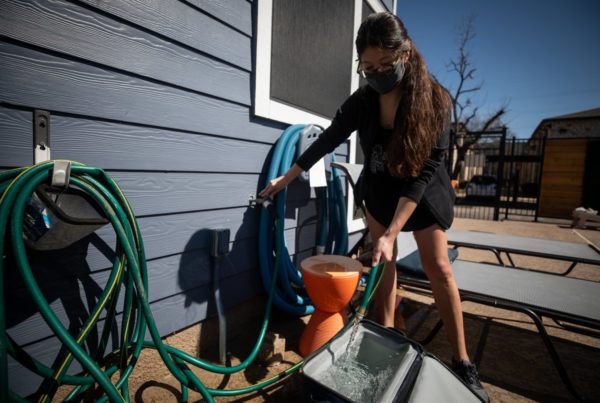Last March, Madeline Lofland lost her job as a nanny. She wasn’t in a bad financial situation before the pandemic, and she was able to keep paying rent for months with her savings.
But the 23-year-old, who lives in a one-bedroom apartment in Northwest Harris County, found that her unemployment check didn’t cover all of her rent, and when her savings ran out, she gave her landlord the form that’s supposed to stop her eviction under an order issued last September by the Centers for Disease Control and Prevention — an order that’s meant to slow the spread of COVID-19 by making sure people don’t become homeless or move into crowded shared housing.
“Everything on the CDC declaration applies to me. I’ve tried my best to make partial payments. I was paying my rent seven months after I lost my job,” Lofland said. “I’m constantly looking for a job. I miss having a job.”
But her landlord pushed back, filing a lawsuit to evict her.
Lofland’s case is one of the more than 13,000 evictions that have been filed since the CDC moratorium was put in place, and more than 24,000 evictions that have been filed in the Houston area since the start of the pandemic, according to research from Eviction Lab and data consulting firm January Advisors.
Without a state or local moratorium in place, more renters have been evicted in Houston during COVID-19 than almost anywhere else in the country. By comparison, with a local moratorium protecting renters, the Austin area has had fewer than 900 cases filed in the same period of time.
“When I got my first court order,” Lofland said, “I almost just left that week because I just genuinely didn’t know what to do.”
Many renters do leave at that point. But Lofland decided to try to keep her home after she got connected to Lone Star Legal Aid, one of five organizations in the Eviction Defense Coalition in Harris County. About 3% of renters are represented by an attorney in Harris County courts.
“I don’t know how other people are handling it on their own, because this situation is bigger than me. It’s bigger than anything I’ve ever had to deal with before,” Lofland said. “It’s genuinely traumatizing.”
Lofland’s case went before Harris County Judge Jeff Williams. She said Williams asked her questions to determine whether her CDC form was accurate, and while he decided she met four out of five requirements, he wasn’t convinced about the last one.
Lofland said the judge asked her questions like, “Do you really have nowhere else to go? Why can’t you live with your parents? How many bedrooms do your parents have?”
“I was in tears at this point and I was like, ‘Yeah I will be living in my car.’ And after that, he made his decision,” Lofland said. “He was like, ‘I just don’t believe that you will be homeless. I believe that you can go live with your mom.'”
Lofland explained that if she had a relationship with her parents, she would have moved in with them months ago when she lost her job.
“He would ask me a question and I would start to answer it and then he would basically just tell me to shut up really quick,” Lofland said. “It just really seemed like he didn’t care what me or my attorney had to say about anything at all.”
When her attorney argued Lofland had nowhere else to go, Lofland said the judge threatened to hold the attorney in contempt.
The judge didn’t decide to hold the attorney in contempt, but in hearings observed by Houston Public Media, Williams threatened others, as well.
In a case earlier this month, Williams warned a tenant to answer his questions more quickly, or else he would hold her in contempt or arrest her.
In a hearing where a renter had phoned into the hearing, Williams ruled to evict the woman, who then asked him, “Aren’t evictions supposed to be on hold through March?”
In response, the judge disconnected her call.
In one case, Williams opined that the CDC order is unconstitutional.
Williams’ office did not respond to multiple requests for comment from Houston Public Media.
In Lofland’s case, Williams ruled to evict her. But she’s currently living in her apartment, waiting for another judge to hear her appeal. She said that without her attorney’s help, she would have been living in her car during last week’s freeze.
But if Lofland’s eviction lawsuit had been heard by a different Harris County judge — even one in the same precinct — she may have gotten a different ruling.
There’s a significant gap in how Harris County judges are applying the federal order, according to new research from January Advisors.
“It really depends on the judge. Judges approach this very differently,” said Jeff Reichman, founder of January Advisors.
One major difference is whether or not judges decide to tell renters about their rights, Reichman said. While some Harris County judges have had CDC forms filed in nearly 30% of the eviction cases in their court, other judges are at 10%.
“They can have an impact,” Reichman said. “And if they really prioritize ensuring that tenants are made aware of these protections, then they can help a lot of people.”
While the Texas Supreme Court has ordered local courts to include information about the CDC order in the citation issued to tenants, judges who preside over evictions — also called justices of the peace — have discretion when it comes to how they want to conduct hearings.
“We need to have better standard practices for judges to follow,” Reichman said. “Because if the burden is on the tenant, and the tenants don’t have legal representation, then the judges are the ones that can really make them aware of this declaration.”
Lofland’s case was heard by Judge Jeff Williams, a Republican who’s been on the bench for 11 years, but the lawsuit could have been filed with the other judge in the same precinct, Democrat Israel Garcia. Last fall, Garcia unseated incumbent Republican Russ Ridgway.
Garcia said he takes an opposite approach of his predecessor, who had CDC forms filed in only 10% of the eviction cases in his court.
“The normal run of the mill eviction, I don’t believe it should be happening,” Garcia said. “We should not be putting people out of their homes, especially during a pandemic.”
In his own court, Garcia said he’s paused every eviction case on his docket since he took his seat on Jan. 1.
As a new judge learning the ropes, Garcia has been watching other Harris County judges who are holding hearings on Zoom. Garcia was stunned when he observed how a judge handled a recent eviction case where a renter owed about $500 and had been locked out by the landlord.
“She clearly was begging and pleading for mercy, and the judge did not even bother to ask about the CDC declaration,” Garcia said. “My jaw dropped to the ground. The jaws of all my clerks – we were all witnessing this in my courtroom. As soon as that one eviction hearing ended, I turned it off.”
Judges can run their courts their own way and he respects that, Garcia said. But he believes judges have a responsibility to tell renters their rights, including those who don’t speak English.
“For the court to not even offer you the basic courtesy of a remedy that is there is very shocking,” Garcia said. “It’s just very painful to see.”















